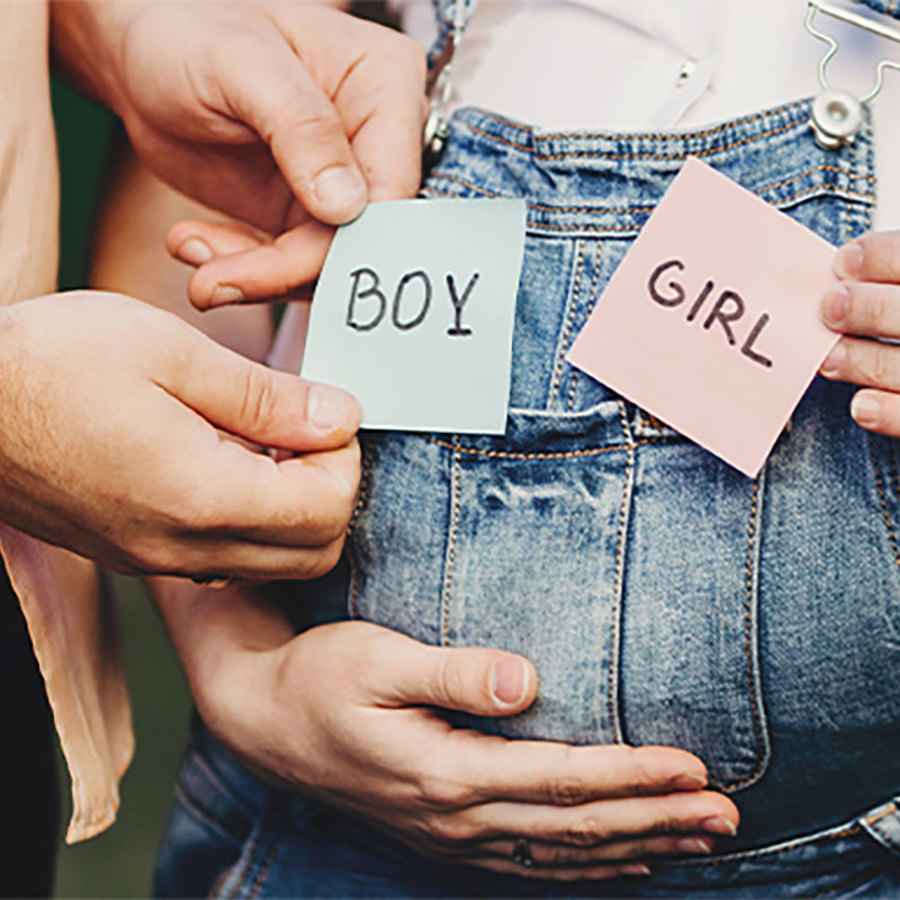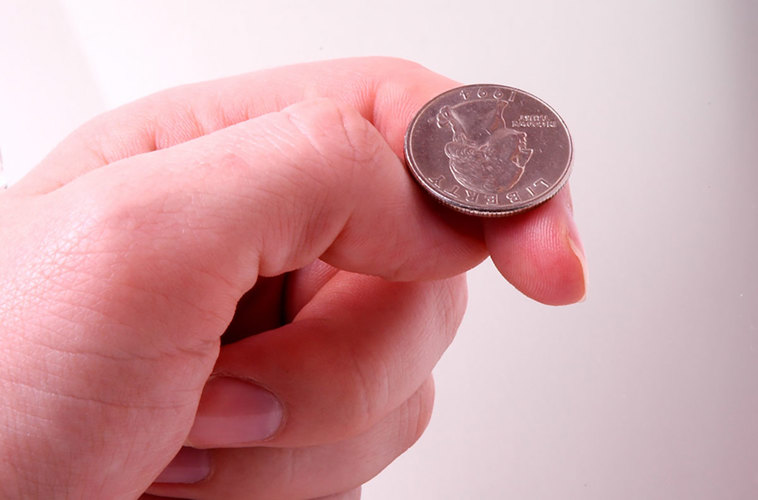
My partner and I both have sisters. What are the chances of us having a boy?
October 12, 2004

- Related Topics:
- Sex ratio,
- Genetic sex,
- Genetic myths,
- Common questions
A high school student from Trinidad and Tobago asks:
“My boyfriend has 3 sisters whereas I have 2 sisters and no brothers. What are the chances of him and I having a baby boy?”
This is a really great question that we get a lot in one form or another. The short answer is that your chances of having a boy are the same as everyone else's.
This is because the odds of something happening apply to each time it happens – it doesn't matter what came before. Let’s use flipping a coin as an example.
As you know, there is a 50-50 chance of getting heads when you flip a coin. If your first flip gives you heads, will the second automatically be tails? No. (Try it out if you don't believe me.) On the second flip, you still have a 50-50 shot of getting heads.
What if you flipped a coin 100 times and got heads every time? What are the chances of getting tails on the next flip? They’re still 50-50. Just like the example above, it doesn’t matter what happened before. Each flip of the coin still has a 1 in 2 chance of heads and a 1 in 2 chance of tails.

The same is true in genetics. If you have a 1 in 4 chance of having a blue-eyed baby and your first three kids are brown eyed, will your fourth child have blue eyes? Maybe. That child still has only a 1 in 4 chance of having blue eyes.
What works for eye color works for the sex of your child too. No matter how many sisters or brothers you have, the chance of having a boy or a girl is the same.
And that chance is 50-50, right? Actually not. Believe it or not, there is a slightly better chance of having a boy. For every 100 girls born, 106 boys are born. Why is this?
No one knows for sure, but one of the more interesting theories I’ve heard is that boy sperm get to the egg faster than girl sperm. The reason boy sperm is faster is that it carries a lighter load – it has less DNA than a girl sperm.*
Remember, boys and girls have 45 of their chromosomes in common. What separates them is that for girls, the 46th chromosome is an extra X while for boys, it is a Y.
The Y chromosome is much smaller than the X. The X chromosome is about 150 million base pairs long while the Y is only 50 million long. The idea is that the extra 100 million bases slow the girl sperm down just enough for the boy sperm to get there first. The result is that more boys than girls are born.

When we look at adults, though, we see that the average is back to 50-50, 100 men for every 100 women. Why is this?
The idea is that boys are actually more fragile than girls -- fewer boys make it to adulthood than girls. Scientists aren't sure why exactly this is but there are the same number of male and female young adults.
Up to now, I've only discussed statistical arguments. There is a slim chance that some families might have fewer boys than girls (or vice versa) for some genetic reason. For example, what if a severe birth defect associated with the X or Y chromosome runs in your family?
If this were the case, then your family would probably have fewer boys born than girls. The chances of having a boy or girl sperm fertilize the egg would be the same. But since the boys wouldn't be born, all the living children would be girls.
As I said, this and other reasons like this would be extremely rare and probably don't apply to your situation. My guess is that your two families have got 5 heads in a row and on the next flip, just might get a tail!
*Editor’s note (5/27/2021): This article suggests that “male” (Y-bearing) sperm may be faster than “female” (X-bearing) sperm, increasing the chances of producing a boy. This hypothesis has since been debunked. While it’s still true that the human sex ratio is slightly skewed towards males, there is no evidence that the speed of sperm plays a role.

Author: Dr. Barry Starr
Barry served as The Tech Geneticist from 2002-2018. He founded Ask-a-Geneticist, answered thousands of questions submitted by people from all around the world, and oversaw and edited all articles published during his tenure. AAG is part of the Stanford at The Tech program, which brings Stanford scientists to The Tech to answer questions for this site, as well as to run science activities with visitors at The Tech Interactive in downtown San Jose.
 Skip Navigation
Skip Navigation
